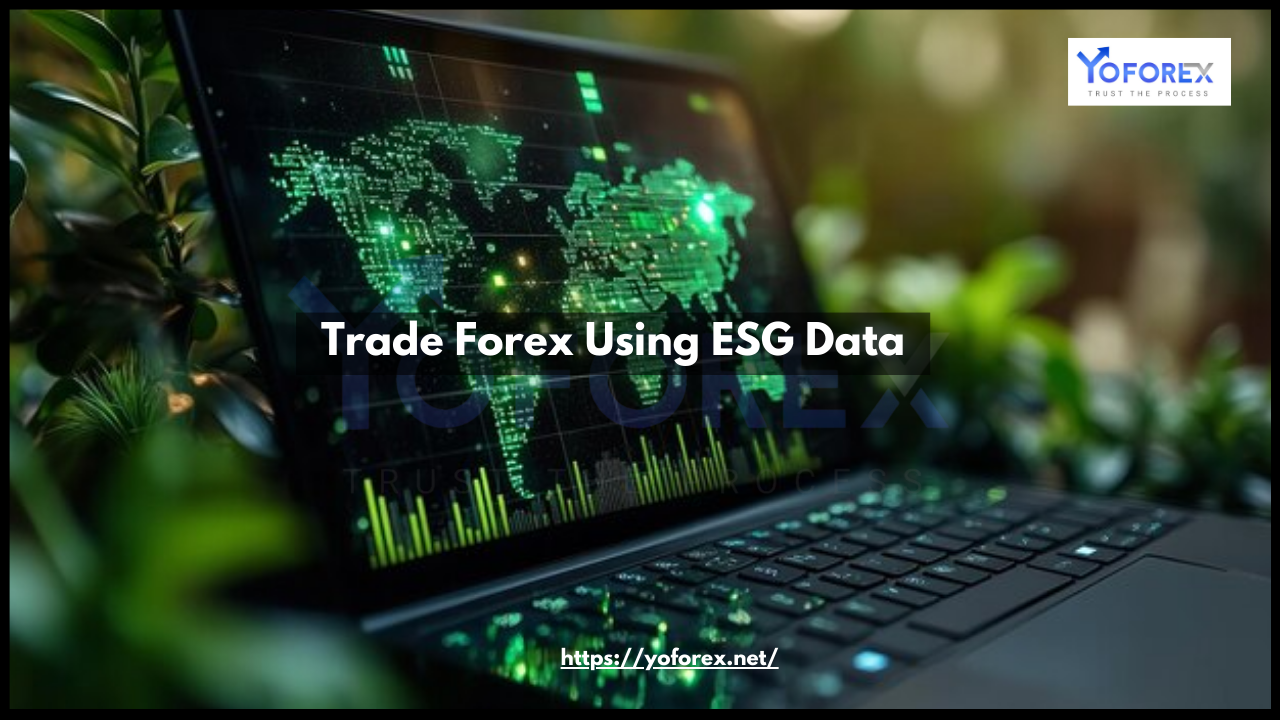Forex trading has long been influenced by macroeconomic factors, technical indicators, and geopolitical events. However, a new trend is emerging—trading forex using ESG (Environmental, Social, and Governance) data. As sustainability and ethical investing become more prominent, traders are beginning to integrate ESG factors into their strategies to assess currency strength and long-term economic stability. In this article, we explore how ESG data can be used effectively in forex trading.
What is ESG Data?
ESG data measures a country’s environmental, social, and governance performance. Investors and traders analyze this data to assess risks and opportunities. Here’s how each component affects the forex market:
- Environmental (E): Factors such as climate change policies, carbon emissions, and renewable energy adoption influence a country’s economic sustainability and currency value.
- Social (S): Metrics like labor laws, social equality, and education levels impact workforce productivity and economic resilience.
- Governance (G): Political stability, regulatory efficiency, and corruption levels directly affect investor confidence and the strength of a nation’s currency.
Why ESG Data Matters in Forex Trading
- Long-Term Economic Stability
Countries with strong ESG scores tend to have more stable economies, attracting foreign direct investment (FDI) and boosting their currency value. - Investor Sentiment and Confidence
Ethical and sustainable policies improve investor sentiment, which strengthens the demand for a country’s currency. - Regulatory and Policy Changes
Nations with stringent ESG policies attract more responsible investments, reducing economic risks and currency volatility. - Risk Mitigation
ESG data helps traders avoid countries with poor governance, environmental risks, or social unrest that could negatively impact their currency.

How to Integrate ESG Data into Forex Trading
1. Analyzing ESG Scores
Traders can refer to ESG ratings provided by organizations like MSCI, S&P Global, and the World Bank. Countries with high ESG scores tend to have stronger and more stable currencies over time.
2. Comparing ESG Rankings with Currency Strength
By comparing ESG rankings with currency trends, traders can identify strong or weak currencies based on sustainability factors.
3. Using ESG-Driven Economic Indicators
- Green Energy Investments: Countries investing in renewable energy often experience economic growth, strengthening their currency.
- Social Stability Index: Lower inequality and better healthcare policies indicate a robust economy.
- Political Stability Index: Countries with effective governance attract more investment, supporting currency appreciation.
4. Incorporating ESG into Technical and Fundamental Analysis
- Pair ESG with Traditional Analysis: Combine ESG scores with traditional economic indicators like GDP growth, inflation, and interest rates.
- Use AI and Big Data: Advanced algorithms can track ESG developments in real time, offering traders an edge in decision-making.
- Monitor Policy Announcements: Changes in environmental and social policies impact currency valuations.
Case Studies: How ESG Influences Forex Markets
1. European Union (EU) and Sustainable Investments
The EU’s commitment to green energy and strong governance has helped strengthen the Euro (EUR). Sustainable policies have made the EU an attractive region for investors.
2. China’s ESG Challenges and the Yuan (CNY)
China faces ESG-related concerns such as pollution and human rights issues. These factors have occasionally led to capital outflows, affecting the Yuan’s value.
3. Nordic Countries and Currency Strength
Nordic nations (Sweden, Norway, Denmark) have high ESG rankings, contributing to strong and stable currencies due to investor confidence and sustainable policies.
The Future of ESG in Forex Trading
With ESG becoming a key focus for global investors, central banks and governments are integrating sustainability into economic policies. Traders who adapt to ESG-driven forex trading can gain a competitive advantage by aligning with market trends and ethical investment principles.
Challenges in ESG-Based Forex Trading
- Data Availability and Standardization: ESG data varies by country and is not always standardized.
- Short-Term Volatility: While ESG improves long-term stability, short-term forex movements may still be driven by traditional factors.
- Lagging Impact: ESG policies take time to influence currency strength, making it a long-term strategy rather than a short-term trading tool.
Conclusion
Trading forex using ESG data offers a fresh perspective on currency valuation and risk assessment. By integrating sustainability metrics, traders can make more informed decisions, reduce risks, and align with global economic trends. As ESG considerations continue to gain traction, forex traders who incorporate them into their strategies will be better positioned for success in the evolving financial landscape.

